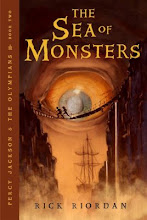Obviously, “fantasy” literature is going to take liberties with the scientific laws and/or historical accounts of our world. In some cases, such as when the story takes place in an alternate time and/or planet, those paradigms are utterly shattered by what the author presents us. It’s part of the draw and charm of fantasy lit—testing the boundaries of what could have been or what might be in another time or place, while still exploring personalities, conflicts, and themes that are very real to us.
But in order to keep us somewhat grounded and give us a point of reference, authors typically provide context for the “fantastical” elements in their stories (magic, mythical creatures, high-powered steam technology, etc.). This may include some semblance of logic or historical background to validate the “reality” of these unrealistic features. In some cases, there are volumes of history or highly elaborate, almost scientific explanations to persuade the reader to take the fantasy as truth.
I find the ways authors establish their fantasy worlds to be some of the most intriguing aspects of their works. Joss Whedon’s Buffy the Vampire Slayer TV series and follow-up comic books borrow heavily from occult legend to intensify the battle between good and evil. (Awesome TV show, btw. Don’t judge!) Michael Scott’s The Alchemyst is full of “secret history,” recounting real historical events and people with a magic twist. And I haven’t read the books yet, but even from the movies, I can tell that J.K. Rowlings’ magical Harry Potter realm is so detailed and airtight, you can’t help but question whether it just might co-exist with the modern-day UK. All are great examples of the interplay between fantasy and reality; they are testaments to the creativity and craftsmanship that exist on our bookshelves (well, mine at least).
It’s interesting to note that authors seem to successfully establish these new paradigms with varying levels of complexity and detail. David Eddings’ Belgariad and Mallorean series, for example, has “the Will and the Word” as an explanation for magic. It’s a simplistic system, but rife with religious and literary parallels that allow you to gloss over its unadorned, matter-of-fact nature. (Of course, simplicity is also part of Eddings' distinctive style.)
On the other extreme, you have Tolkien’s Middle-earth, with hundreds of pages of made-up history, language, and names that challenge you to deny its existence. We take for granted the accepted canon of elves, dwarves, and wizards in fantasy writing, but Tolkien was one of its pioneers in his day. Even now, contemporary authors, script writers, and video game creators borrow from the conventions he helped to establish.
What were some of the best fantasy elements you’ve encountered in your reading, and what did the author do to give it that “coolness factor”?
Thursday, February 4, 2010
Subscribe to:
Post Comments (Atom)






I think fantasy is so hard to write well. Because if the world isn't right, it's cheesy. I'm not much into high fantasy, but my husband loved Brandon Sanderson.
ReplyDeleteAh cool, I've heard Sanderson writes good stuff. Reviews of part one of the Wheel of Time finale are very positive, so good on Sanderson for filling Robert Jordan's shoes.
ReplyDeleteAnd I agree about the cheesy part. Although, I do love cheese...
Your posts are always so well done. I feel like I have to go away and do some thinking before I actually comment, and sometimes I forget to come back! So... yesterday's post was awesome! As for today's, I love the Inkheart trilogy, the Septimus Heap books, Percy Jacksons, The Last Apprentice, the Fablehavens...I love them all because they are believable. They pull me in and won't let go.
ReplyDeleteHey Shannon, thanks for the kind words! Glad you like this place enough to stick around and add your thoughts!
ReplyDeleteNice list of books. I've read a couple of the Percy Jacksons and the first Septimus Heap at this point. They are fun reads. Fablehaven is on my to-read list, at some point. *sigh* I need to learn how to not sleep and still function. Then, I could get all my reading and writing done lickety split!
You MUST read the Fablehaven series - they are fabulous! Seriously. I wish I wrote them.
ReplyDelete